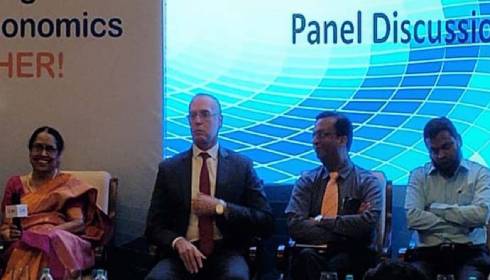
Bengaluru: BD organizes 'Heal-o-nomics' on hospital acquired infections
DTMT Network
BENGALURU : To address the challenge of hospital acquired infections (HAIs) in the country, BD-India hosted 'Heal-o-nomics’ in Bengaluru to prevent the rising number of HAIs and to achieve better health outcomes at optimal cost.
“Over the last few years, India has found the real incidence of HAIs. These infections have been probably caused due to insufficient compliance with infection control guidelines, such as hand hygiene and the use of outdated technology,” said Dr Victor D Rosenthal, president, International Nosocomial Infection Control Consortium.
“The total number of bloodstream infections in patients with peripheral vascular catheters is five times more than the patients with central vascular catheters. To address this issue, we need to opt for better technologies which are based on clinical outcomes, and cost-effectiveness,” he added.
The most common types of HAIs are bloodstream infection, pneumonia, urinary tract infection and surgical site infections.
Dr. Sajan Nair, CEO, Zydus Hospital, Ahmedabad, said, “Initiatives like ‘Heal-o-nomics’ from BD will create a greater impact in improving the patient outcomes in our healthcare facilities.”
“Providing proper trainings to the healthcare workers can be the first step towards creating the safe ecosystem. Initiatives like ‘Heal-o-nomics’ have created a great impact and we are consistently improving the patient outcomes in our healthcare facilities,” said Dr PBN Gopal, head, Critical Care Medicine, at Continental Hospitals.
HAI’s, also known as nosocomial infections, are acquired from the healthcare facilities through hospital staff, patients, contaminated equipment and linen.
Out of every 100 hospitalised patients, at any given time, seven in high income countries and 10 in low and middle income countries will acquire one or more HAIs. WHO reports that at any given time over 1.4 million globally suffer from HAI.